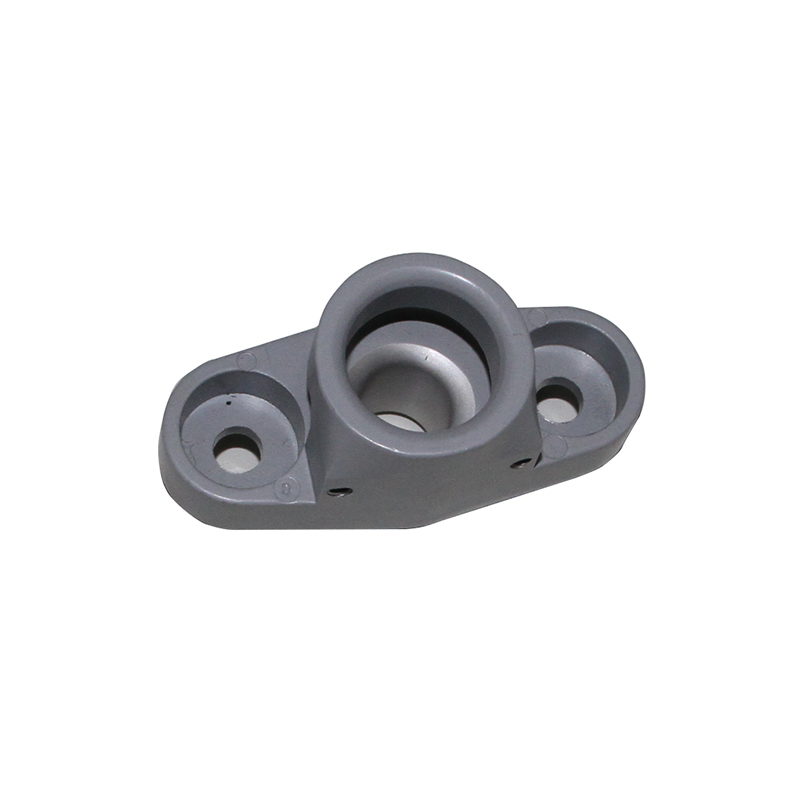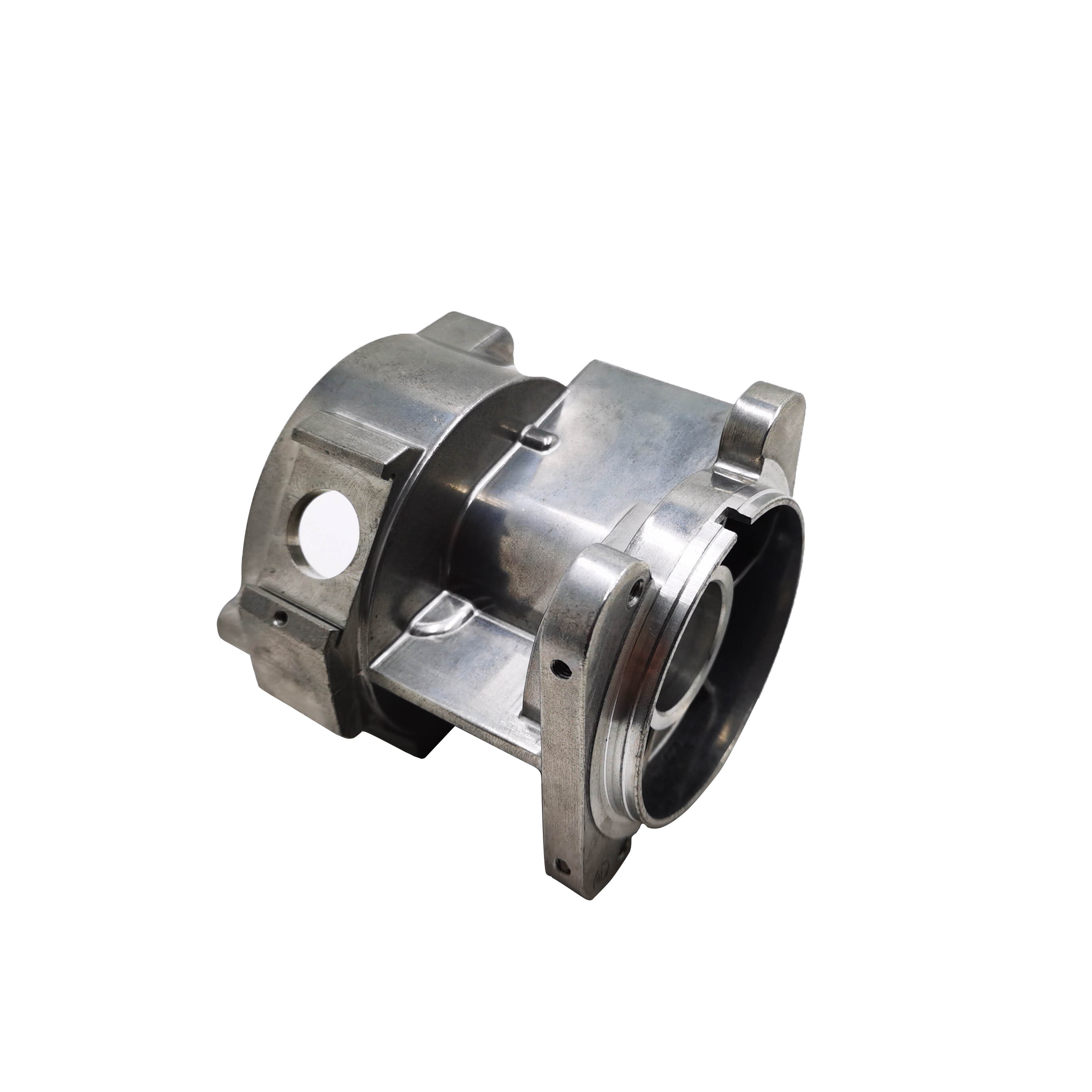Precision aluminum casting solutions that boost product reliability and performance
Wiki Article
How Factory Solutions Enhance Manufacturing Effectiveness and High Quality in Industrial Applications
Foundry services play a crucial role in boosting production performance and top quality across various industrial applications. By implementing sophisticated metal spreading methods, these services assure parts are produced with precision and consistency. This not just minimizes preparations yet additionally minimizes waste, cultivating better cooperation between suppliers and factories. The effect of top quality elements on operational performance raises vital inquiries regarding the future of industrial production. What innovations exist in advance in this developing landscape?The Duty of Shop Providers in Streamlining Manufacturing Processes

Factories frequently offer knowledge in alloy advancement, allowing suppliers to use innovative products that boost product performance. The partnership between suppliers and shops fosters a far better understanding of manufacturing demands, leading to maximized processes and improved product styles. By leveraging factory services, manufacturers can achieve better flexibility, adapt to changing market demands, and preserve competitiveness in the market. On the whole, the function of foundry solutions is essential in helping with a more efficient and affordable production landscape.
Advanced Technologies in Factory Workflow
Ingenious modern technologies are transforming foundry procedures, substantially improving performance and precision. Automation plays an important function, with robotic systems enhancing repetitive tasks such as molding and material handling. Additionally, developments in computer-aided layout (CAD) and computer-aided manufacturing (CAMERA) systems allow factories to develop intricate geometries with greater accuracy and minimized product waste.Additionally, the integration of artificial knowledge (AI) and artificial intelligence boosts quality assurance by keeping an eye on procedures in real-time and forecasting possible defects before they occur. Making use of innovative materials, such as lightweight alloys and composites, even more improves the performance characteristics of cast products.
Moreover, 3D printing technology is transforming prototyping and tooling, permitting for quick modification and lowered preparations. Jointly, these advanced modern technologies not just raise manufacturing effectiveness but also assure that the last items satisfy rigid quality criteria, placing foundries at the leading edge of modern commercial applications.
Decreasing Lead Times With Effective Foundry Practices
Reliable foundry techniques play an essential duty in reducing lead times within production settings. By applying structured production processes and advanced scheduling strategies, makers can boost operations and optimize source allotment. These improvements not just increase output however also add to general operational efficiency.Structured Production Processes
Enhancing production processes is essential for reducing lead times in the manufacturing sector. Efficient foundry practices, consisting of optimized process and source monitoring, play an important role in achieving this goal. By lessening waste and improving communication among teams, foundries can significantly improve their functional performance. The execution of standard treatments additionally contributes to constant top quality and faster turnaround times, allowing suppliers to react even more swiftly to market demands. Furthermore, the integration of advanced technologies, such as automation and real-time surveillance systems, helps in recognizing bottlenecks and facilitating timely interventions. On the whole, a focus on streamlined production processes not only speeds up lead times yet additionally boosts the total competition of commercial applications, ensuring that items fulfill customer assumptions efficiently.Advanced Organizing Techniques
Efficient production procedures naturally lead producers to discover innovative scheduling techniques as a means to further minimize lead times. By utilizing sophisticated algorithms and software program, factories can enhance workflows, aligning production schedules with need projections and source schedule. Methods such as Just-In-Time (JIT) scheduling lessen stock costs while making sure prompt product distribution, consequently enhancing functional effectiveness. In addition, integrating real-time information analytics permits shops to prepare for prospective hold-ups and adjust routines proactively. This flexibility not just simplifies procedures but also enhances overall performance. Collective planning with suppliers and clients can cultivate a much more integrated supply chain, more lowering lead times. Inevitably, these advanced scheduling methods encourage shops to attain higher efficiency and premium high quality in their manufacturing processes.Making Sure Precision and High Quality in Steel Spreading
Assuring accuracy and quality in metal casting needs a precise technique that encompasses every stage of check the production process. This process starts with cautious style and engineering of the molds, guaranteeing they can endure the liquified steel's temperature level and stress. The option of high-grade raw products is crucial, as pollutants can compromise the end product.When the products are prepared, exact temperature control throughout melting and pouring is essential to accomplish the desired homes in the actors steel. Monitoring solidification and cooling prices more assurances dimensional accuracy and surface area finish.
Quality control practices, such as non-destructive screening and examination, are vital to recognizing Home Page issues early at the same time. Aluminum Foundry. Additionally, employing experienced workers that recognize the nuances of metal spreading adds considerably to maintaining high criteria. Overall, these practices jointly enhance the integrity and efficiency of cast parts in different industrial applications
Lessening Waste and Maximizing Source Use

Additionally, recycling scrap steel within the foundry itself can significantly lower waste, changing spin-offs into usable resources. Lean producing concepts likewise add to squander decrease by improving processes and getting rid of unnecessary steps, bring about more reliable operations.
In addition, routine upkeep of devices guarantees peak efficiency, preventing malfunctions that can lead to lost materials. By focusing on these techniques, shops not only minimize costs yet likewise add to lasting practices, straightening with the expanding read what he said demand for ecologically liable manufacturing methods in commercial applications.
The Affordable Advantage of High-Quality Elements out there
Premium parts supply a considerable competitive advantage in the shop market, where accuracy and durability are vital. Suppliers that prioritize premium materials and workmanship can enhance item efficiency and integrity, bring about raised customer fulfillment. This advantage is especially obvious in industries such as vehicle and aerospace, where component failing can have catastrophic effects.High-grade parts frequently result in lower maintenance expenses and expanded item lifespans, which can be appealing marketing factors for potential customers. As market demands expand for lasting and efficient modern technologies, the emphasis on quality ends up being a lot more important. Firms that purchase top quality foundry services not only enhance their manufacturing procedures however additionally differentiate themselves from competitors that might give up high quality for price savings. Consequently, the commitment to high-quality parts eventually translates right into a more powerful market setting and long-term service success.
Frequently Asked Concerns
What Sorts of Products Do Shop Solutions Commonly Function With?
Factory solutions generally collaborate with steels such as aluminum, brass, iron, and steel, together with numerous alloys. They also deal with materials like ceramics and compounds, providing to varied commercial demands and specifications in making procedures.How Do Foundry Solutions Effect Overall Supply Chain Administration?
Factory solutions substantially improve supply chain management by improving material sourcing, reducing preparations, and guaranteeing consistent quality. Their capacity to supply customized remedies fosters collaboration amongst stakeholders, inevitably improving general functional effectiveness and responsiveness in production.What Industries Benefit Many From Shop Providers?
Industries such as vehicle, aerospace, customer, and building goods significantly take advantage of shop solutions. These sectors rely upon precision castings to satisfy rigorous high quality criteria and boost their overall production procedures and product performance.Are Foundry Solutions Environmentally friendly and sustainable?
Foundry solutions can be eco friendly and lasting, particularly when utilizing sophisticated technologies and procedures - Aluminum Casting Company. Developments such as reusing products, reducing exhausts, and enhancing power use add to decreasing their environmental influence in commercial applications
How Can Companies Choose the Right Shop Solution Supplier?
Business can choose the best foundry service provider by reviewing proficiency, production capabilities, quality certifications, technology made use of, client reviews, and sustainability techniques while making certain placement with their certain project demands and long-term service goals.Foundry solutions play a vital duty in improving manufacturing efficiency and top quality throughout various commercial applications. The partnership in between factories and manufacturers fosters a far better understanding of manufacturing needs, leading to optimized processes and boosted product designs. Effective shop practices play an essential function in decreasing lead times within production environments. By using innovative formulas and software, shops can maximize operations, aligning production timetables with need forecasts and source accessibility. Companies that invest in high-quality factory services not only enhance their manufacturing procedures but likewise distinguish themselves from rivals that may compromise top quality for price savings.
Report this wiki page